Healthcare Needs of Aboriginal and Torres Strait Islanders in Sydney
VerifiedAdded on 2021/04/21
|5
|756
|27
Report
AI Summary
This report analyzes the specific healthcare needs of Aboriginal and Torres Strait Islander populations in Sydney, Australia. It begins with an overview of the indigenous population in Sydney and presents data on long-term health conditions, such as asthma, hearing problems, and cardiac issues, highlighting that alcoholism is a major contributor to health problems. The report then explores the cultural determinants affecting the health and well-being of indigenous people, emphasizing the significance of connection to land, culture, and ancestry. It concludes by suggesting key strategies for improving healthcare, including fostering connections to culture and supporting community governance, referencing data from various sources to support its findings. The report emphasizes the importance of addressing these determinants to protect and improve the health of indigenous Australians.
1 out of 5
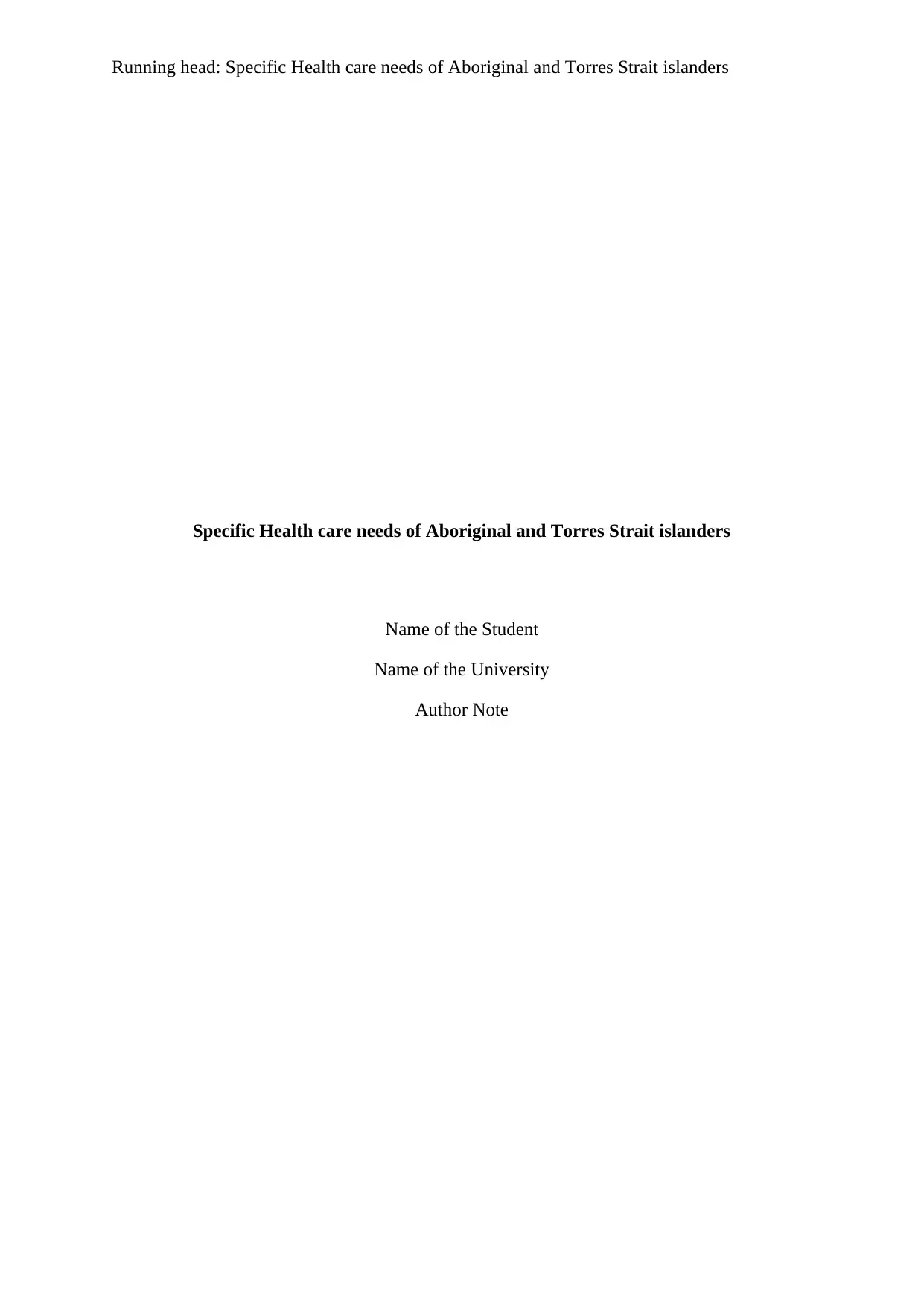
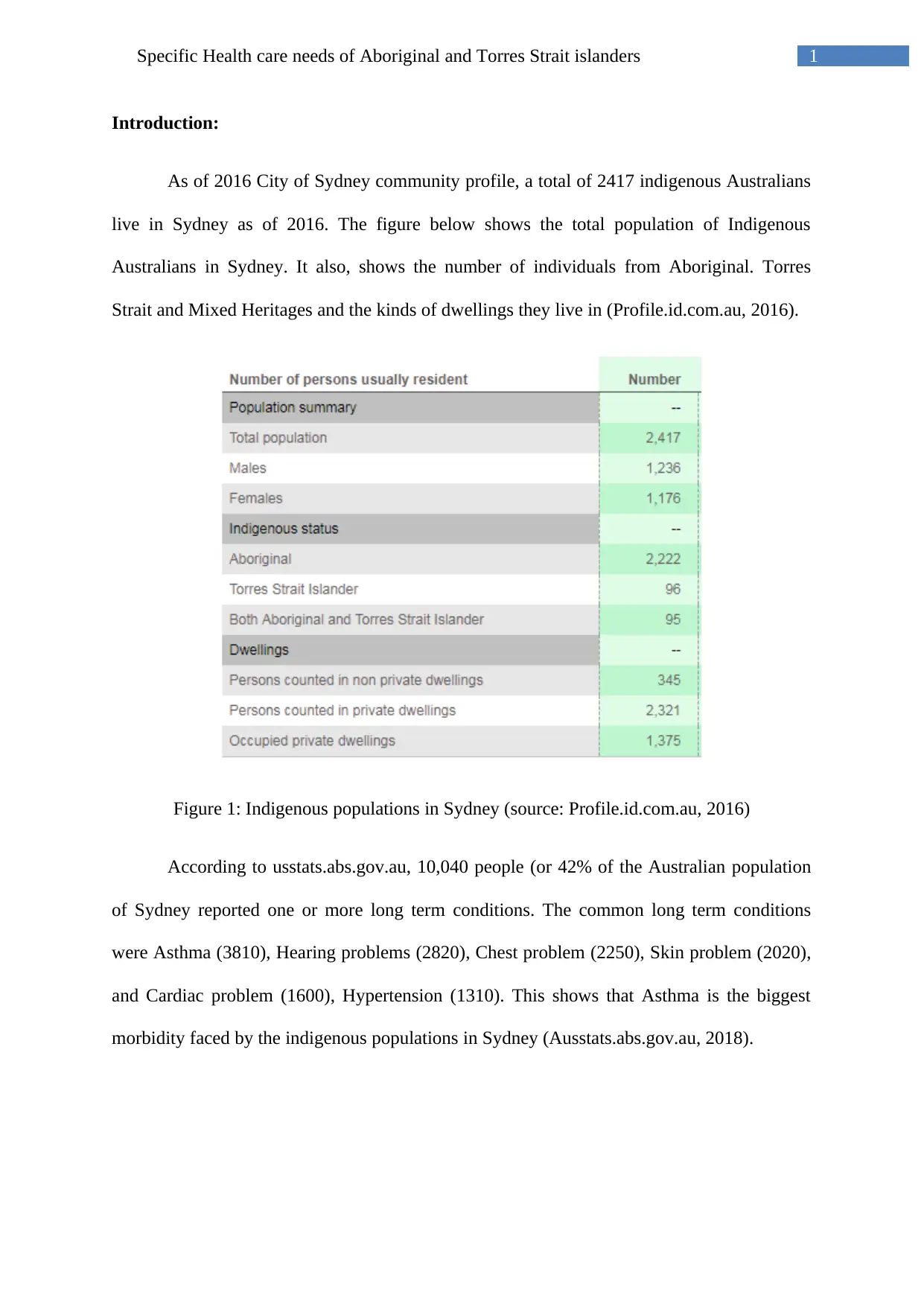
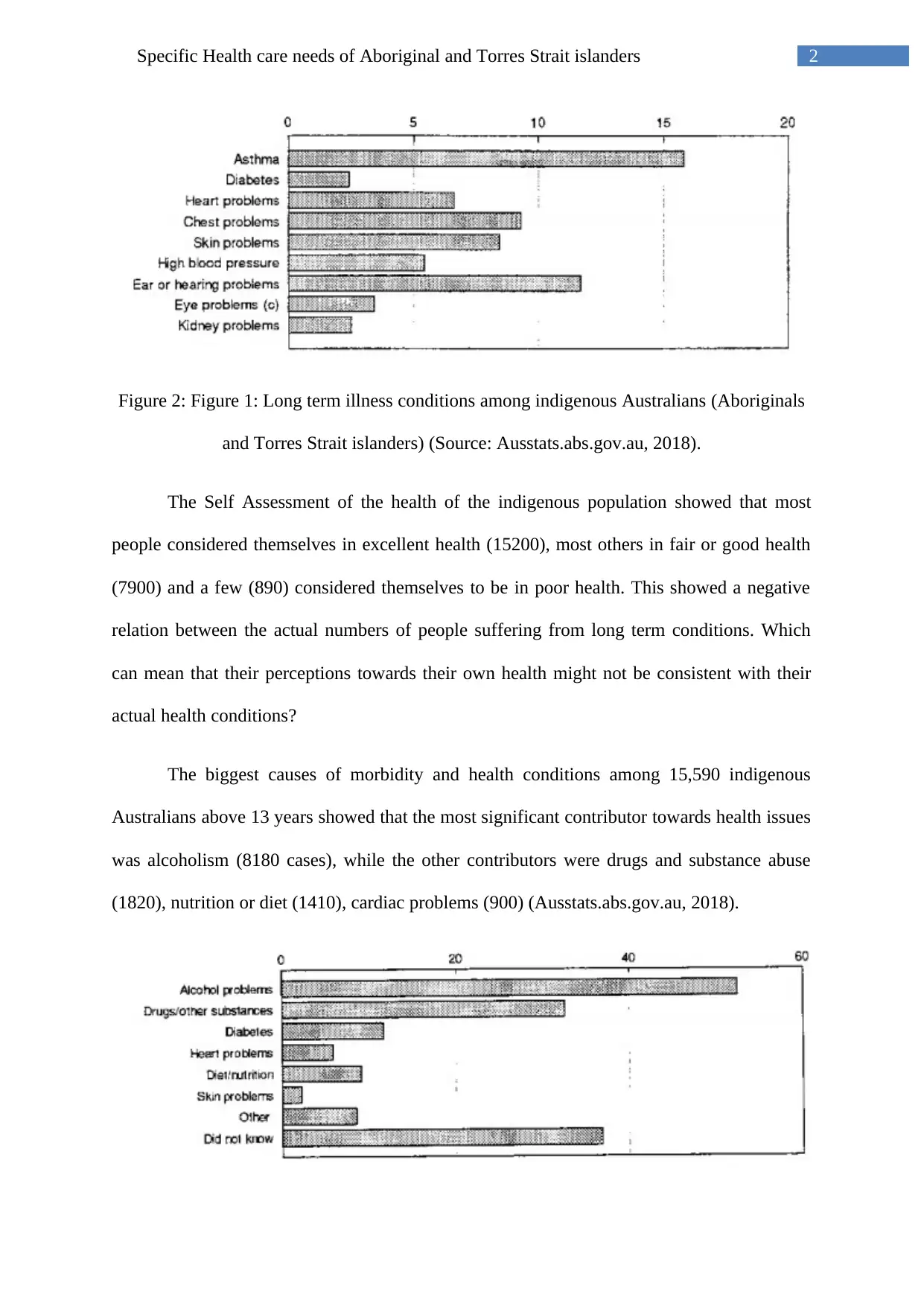

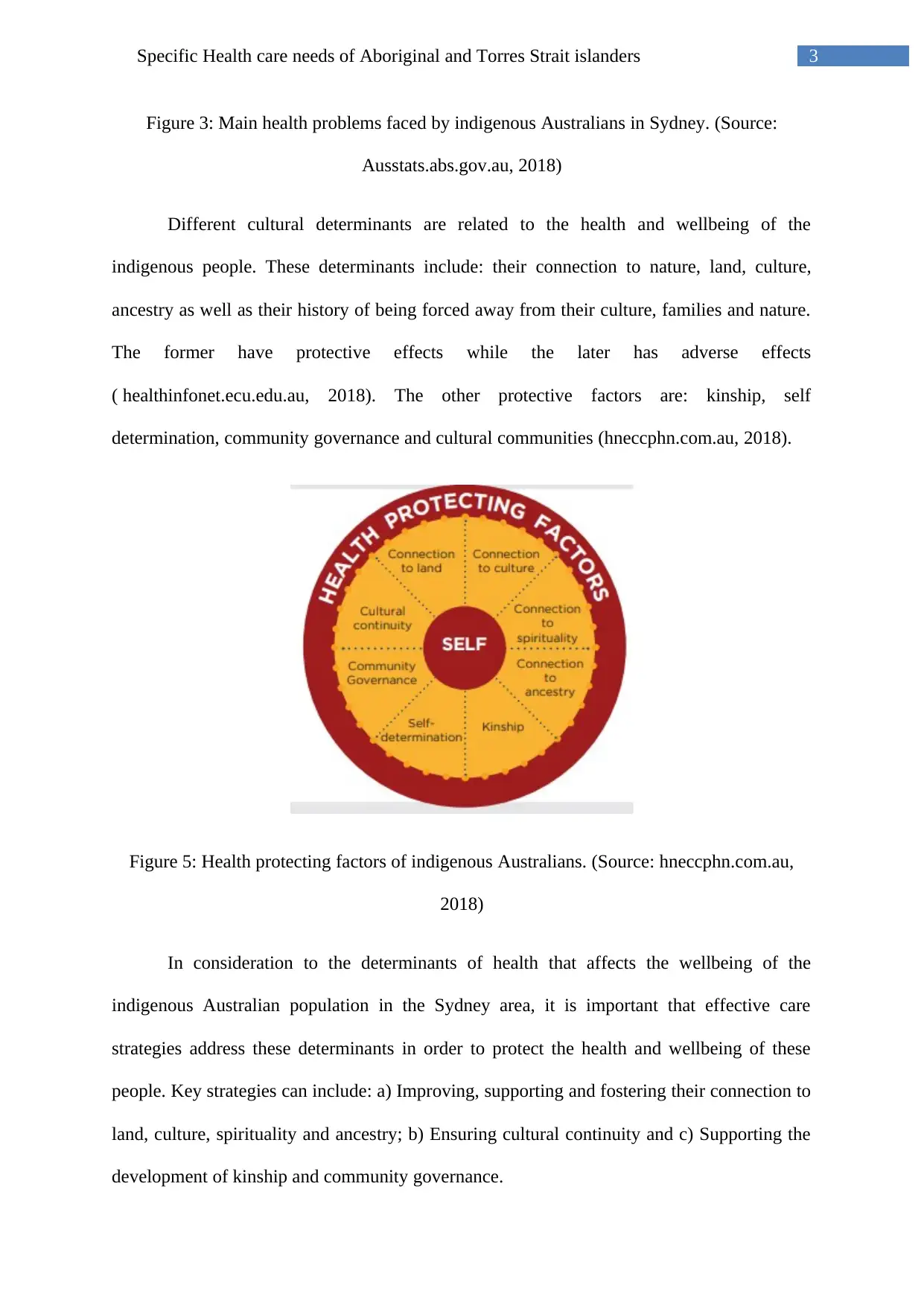
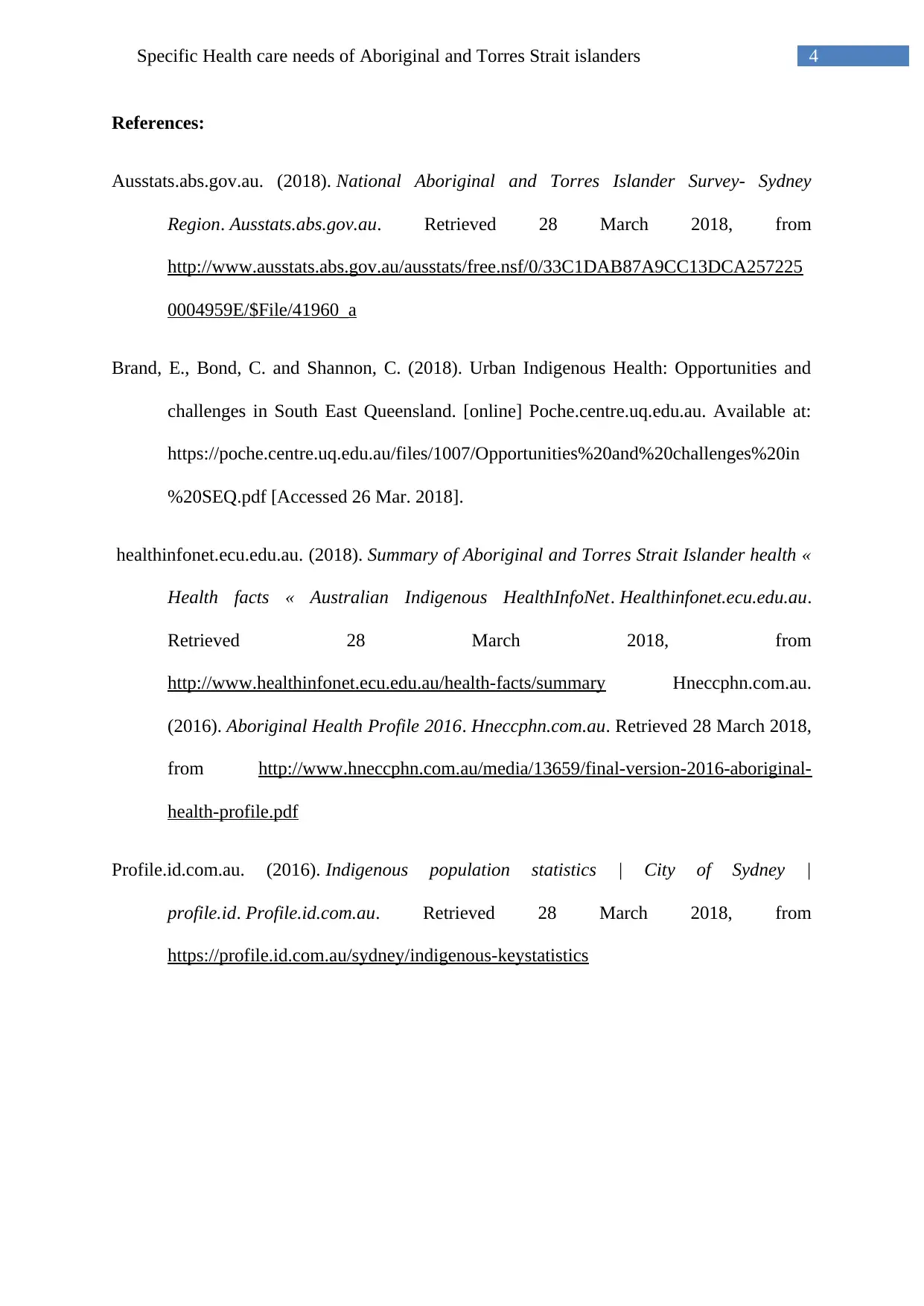






![[object Object]](/_next/static/media/star-bottom.7253800d.svg)